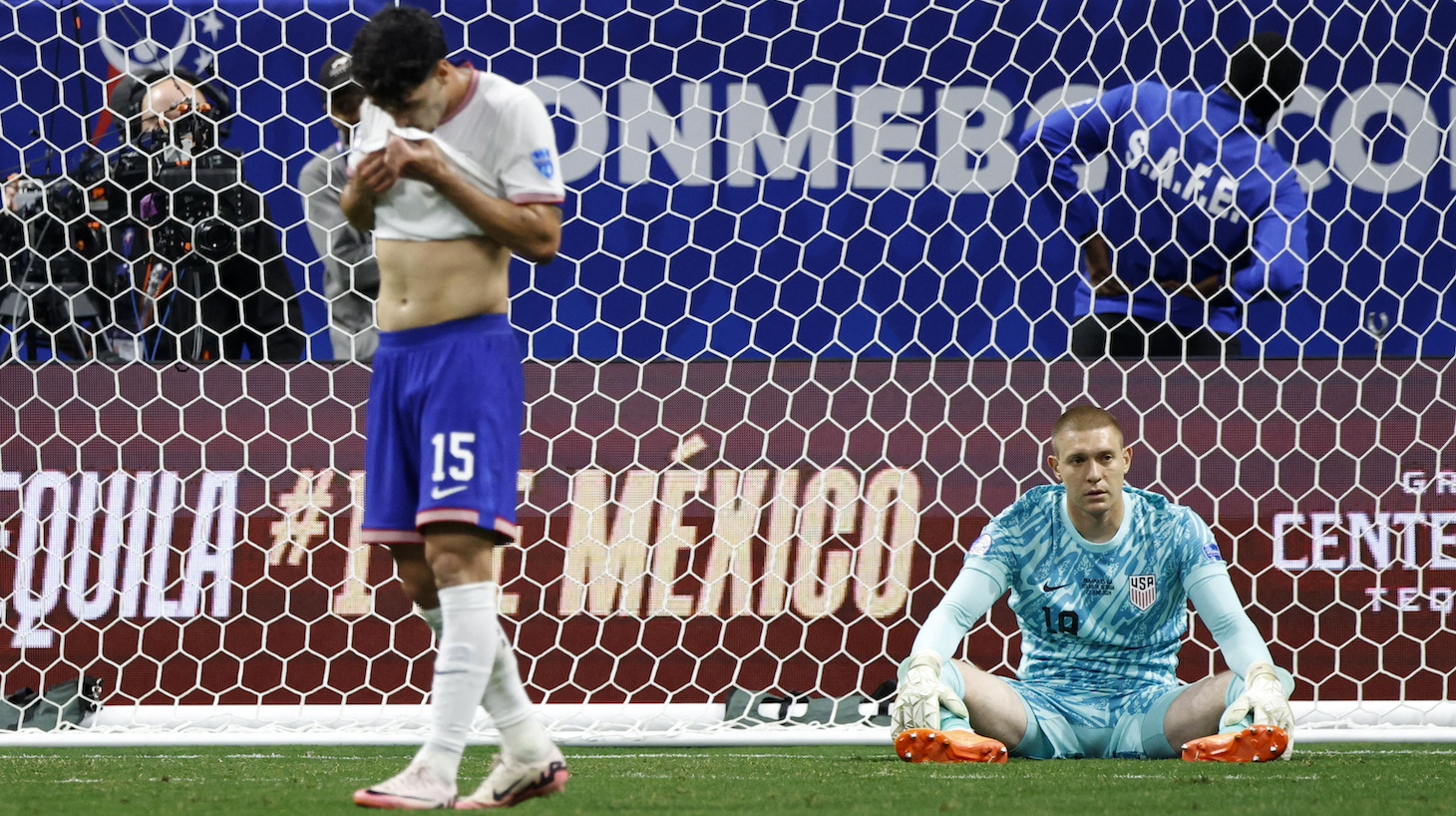Do you have a favorite disappointing USMNT performance of the Gregg Berhalter era? I know, it's hard, there are so many to choose from.
Mine might be this typically drab 1-0 win over Honduras in the semifinals of the Nations League from almost exactly three years ago. Much of what we've come to expect from the U.S. when things aren't clicking—a frustratingly frequent occurrence—was there: pregame optimism, a powerful starting XI, an overmatched opponent, a few flashes of inspiration attributable almost entirely to one or two players' individual efforts, possessions that flowed like drying cement, lapses of attention in defense, a curious inability to create scoring chances from collective play, a curious hesitance to change things when the gameplan wasn't working, curious changes once the belated changes were finally made, and, at the final whistle, the stubborn feeling that what I'd just watched was less than what I should expect from a team with this kind of talent.
Rereading the post I wrote about that Honduras game, I remember not being all that bothered by the situation. The most important part of any international team setup is the talent of the players. The U.S. had talent, more talent than ever before, legitimately huge talents who hadn't even hit their ceilings yet. Berhalter, it already seemed back then, was not the best coach to maximize the talent available to him. But that was no big problem. The team was still young, still growing, and just so long as the players kept advancing, it would eventually become clear that they had outgrown the manager, at which point U.S. Soccer could look for a different, better one. The only real risk was that U.S. Soccer might react to this reality too late, but there was so much time on these young studs' hands that that eventuality didn't feel worth worrying about.
Three years on from that Honduras match, not much has changed. Thursday night featured the latest disappointing USMNT performance of the Gregg Berhalter era, a 2-1 loss to Panama. Stripped of context, you could more or less write this one off and move on. The match was conditioned almost entirely by an incredibly stupid red card Tim Weah got in the 17th minute. The U.S. had looked frisky before then, and had a few promising moments even after the red, but it's no surprise that the team couldn't withstand spending more than an hour with 10 men, and wound up losing.
But as is usually the case, the context here is key. Thursday's match was the second of the USMNT's group stage slate at this summer's Copa América. The U.S. lucked into an easy group from which only a disaster could prevent them from making it to the knockout rounds. Their tournament started encouragingly enough with a breezy victory over Bolivia. The 2-0 scoreline in that game does not adequately express the American dominance on display, though the lack of additional goals prevented it from being a truly memorable performance. Next came Panama. An expected win there would give the U.S. six points, the virtual certainty of finishing in the top two in the group, and presumably a lot of confidence heading into the final match of the group stage, against Uruguay. The match against Uruguay, a serious contender to win the Copa, was to be the first real bellwether of the U.S.'s current place in the soccer landscape, which would then be followed by at least one more as the team entered the knockout stage.
Instead, the U.S. couldn't even clear the Panama hurdle. By tripping over the Panamanians, the Americans will now struggle to get out of the group (though it's not impossible). More importantly, the opportunity this Copa América presented—a rare chance for the U.S. to measure itself against elite competition, an opportunity to play in a major tournament with the pressure and attention and, hopefully, glory that comes with it, and to do all of that outside of the context of a World Cup—was squandered. If this Copa is a bellwether, the results the U.S. has attained so far—an impressive but hardly dazzling win against what's probably the worst team in the tourney, an embarrassing loss to a CONCACAF also-ran—would seem to say that the U.S. is not going in the right direction.
But embarrassing losses and squandered opportunities are also part of the growth process, and a bellwether that brings bad news can be plenty helpful, so long as someone does something about it. The situation is clear: Should the U.S. fail to get out of this group, Gregg Berhalter should be fired. Looking around at the media and fan reactions to Thursday's game, it's heartening to see that there doesn't seem to be much disagreement about that today.
Berhalter does not seem to me to be a bad manager, and I very much value how much the players seem to love him and the team's atmosphere of camaraderie and positivity they say he's played a big role in instilling. The U.S. has a great record against Mexico during his tenure, and the 2022 World Cup was a definite success, even if not a rousing one. At the same time, the Berhalter era has also been defined by frustration and disappointment.
Outside of matches against Mexico, the U.S. has a lousy record against good teams. Even against bad teams, who make up the bulk of the U.S.'s opponents in its heavily intra-CONCACAF schedule, it's hardly uncommon to watch the Americans plod their way through narrow wins or deserved draws and losses. When Berhalter was first hired there was lots of talk about entering a new era of tactical sophistication and possession-based, attack-minded play, but I've not noticed any real consistency with or improvement on any of it, other than what is more easily explained by the fact that we have much better players than the vast majority of our rivals. Most tellingly, we are three years past that Honduras win in the Nations League, with a much deeper and stronger team, and if anything the performances of today's team are even worse.
American soccer is growing. The players are getting better and better, and there are more and more of them who have the potential for excellence. It has become increasingly clear that the players' talents have outgrown Berhalter. It's possible that the U.S. will stun everyone on Monday by beating Uruguay (who, it's worth noting, has beaten Panama and Bolivia by a combined score of 8-1), getting out of the group, and going on to put on a strong showing in the knockout rounds. Absent that, it's hard to see how U.S. Soccer could justify keeping a manager who's USMNT is going in the wrong direction.
Sure, a lot of this probably could've been avoided had Weah not gotten himself sent off against Panama, but those are the stakes of the game. A mature American soccer culture would accept that getting bounced from an easy group in a major tournament at home is unacceptable, and especially when put into the broader context of the team's stagnation, realize that the obvious solution is to find a new manager capable of reaching a higher standard. This doesn't have to be seen as some huge indictment of Berhalter himself or his overall tenure, but losing is supposed to have consequences.
In that way, there is still time for the U.S. to use this Copa América to say something important about the state of American soccer today. Our enviable bevy of outstanding players have already proven at club and international level how good they are, and how their developmental trajectories are by and large trending upward. It's time to show that the rest of the country, both those in power and those of us who constitute the nation's soccer culture, has grown up too.






